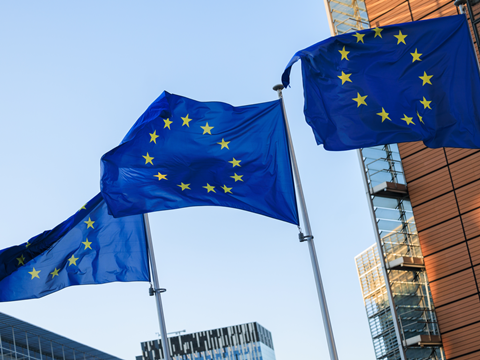
The European Commission has banned the use of Bisphenol A (BPA) in food-contact materials – including reusable plastic bottles, coatings for metal cans, and water distribution coolers – due to concerns about their health impacts.
BPA was already prohibited in baby bottles and food-contact materials geared towards young children. After the latest scientific assessment from the European Food Safety Authority (EFSA) suggests that BPA has ‘potentially harmful effects on the immune system’, a public consultation and discussion was held among EU Member States.
They came to a positive vote on the ban last summer, followed by a scrutiny period among the Council and Parliament. As of 19th December 2024, the use of BPA is forbidden for any products that come into contact with food or drink, and the ban encompasses other bisphenols that are harmful to the reproductive and endocrine systems.
Most products will be given an eighteen-month phase-out period, with ‘very limited’ exceptions where no alternatives exist.
“Maintaining high food safety standards in the European Union and protecting citizens is one of the Commission’s highest priorities,” said Oliver Várhelyi, Commissioner for Health & Animal Welfare. “Today’s ban, which is based on solid scientific advice, will protect our consumers against harmful chemicals where they can come into contact with their food and drink.”
Back in late 2023, we spoke to Lorena Pla Muñoz, Chromatography Laboratory researcher at AIMPLAS, about BPA’s origins in polymer and resin production; the work of European and American organizations to determine the impacts on human health; and predictions as to what the BPA landscape might look like in the future.
Also in December 2024, the European Council formally adopted the Packaging and Packaging Waste Regulation (PPWR). Among its many mandatory targets are the minimization of substances of concern, including PFAS; minimum recycled content thresholds, including a 65% minimum of recyclate for single-use plastic bottles by 2040; and set reuse targets, including the obligation for takeaway businesses to refill consumers’ own containers with pre-prepared food and beverages at no extra charge.
We have provided a comprehensive rundown on our coverage of the PPWR’s progress from November 2022 and throughout 2024.
If you liked this story, you might also enjoy:
The ultimate guide to the Packaging and Packaging Waste Regulation in 2024
How are the top brands progressing on packaging sustainability?
Sustainable Innovation Report 2024: Current trends and future priorities
Everything you need to know about global plastic sustainability regulation














No comments yet